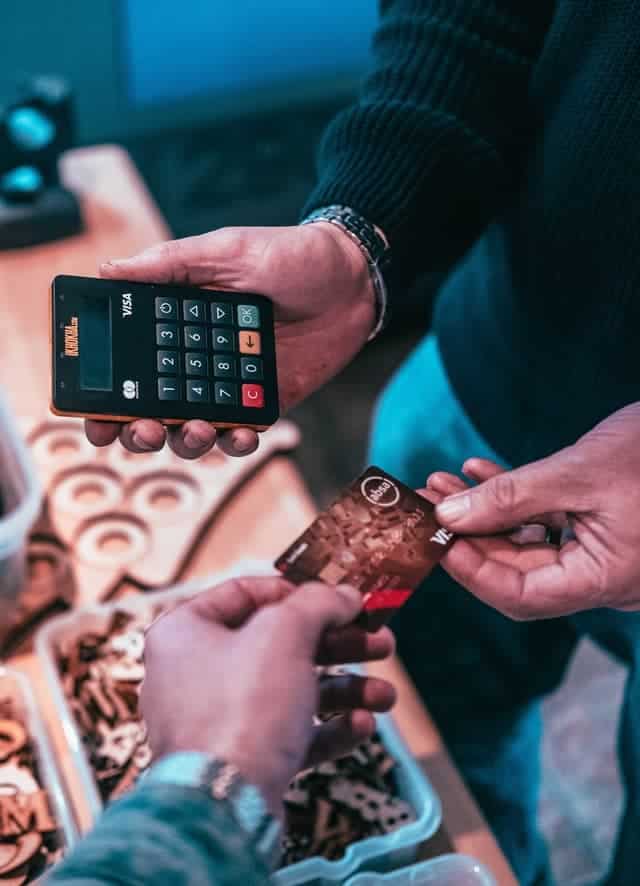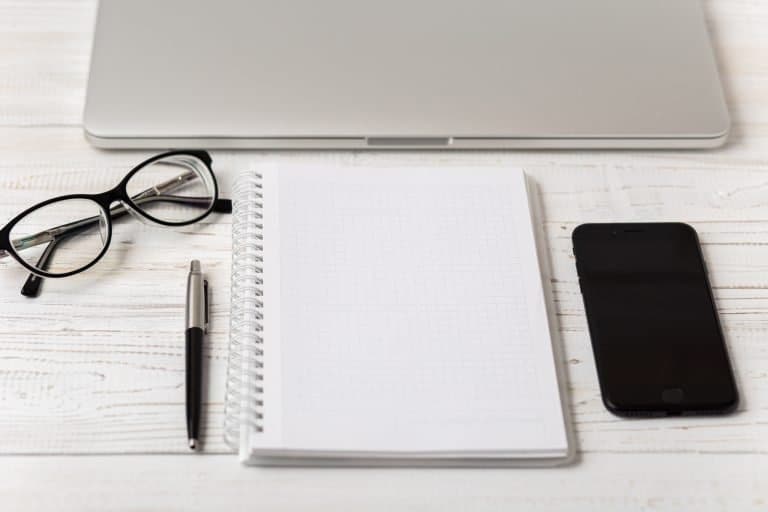There is a saying that money makes the world go round. But in order for you to secure your financial future, it’s important for you to understand the different types of money as well.
After all, if you can better understand how money works, you’ll be able to position yourself accordingly for the future.
This is particularly in light of the various market forces in play, especially inflation. Things like this make it extra critical that you understand the different types and functions of money so that you’re aware of how the money you hold could be impacted by certain events.
So keep reading to find out what the different types of money are and what you need to know about each of them.
What are the 4 types of money?
In general, there are four types of money. They include:
1. Commodity money
The first type of money is called commodity money. In this type of money, there is a specific item that is used as money.
For example, when you were a kid, you may have used Pokemon or Yu-Gi-Oh cards as some form of currency. In that case, these trading cards acted as a commodity, creating a form of currency that you would use amongst your friends. In general, this is like a barter system. You will trade an item for something else.
This type of system works fine in small communities where there is not a lot to swap. It also works better when people know each other, as there is a certain amount of trust that is inherent to the system. You’ll often see this more frequently in developing nations.

There are still certain types of commodities that are used as a form of currency, including spices, tobacco, and shells. However, this means that this type of money can also be difficult to manage. That is, commodities often have to be stored and looked after so they aren’t destroyed by the elements or pests (which probably wouldn’t be great for your personal financial plan…), increasing overhead expenses.
The most common type of commodity is gold, which is still often used as a form of currency today. Buying, storing, and transporting gold can be expensive, so this has largely been replaced by paper money instead.
Related: 10 Best Personal Finance Podcasts for Beginners
2. Fiduciary money
The next type of money is called fiduciary money, which is also sometimes called representative money. It exists on the basis that, in reality, cash is a pain for larger transactions, with a few common examples of this being checks and debit cards.
For example, have you ever tried to purchase a plane ticket using cash? This is just about impossible to do. If you had to buy something worth thousands of dollars with cash, this would be pretty impractical. After all, you would need humongous pockets just to carry all of this cash around, not to mention the security concerns.

As you’ll see from the explanation below, fiduciary money is very similar to fiat money. That is, the pieces of paper and plastic that form checks and bank cards are worthless unless there is something of value backing them up.
So instead of using money and coins, fiduciary money can be used, even if it’s not actually legal tender so you don’t need to treat it as cash. Despite that, fiduciary money is widely accepted as a medium of fiat money. Therefore, you can still use it to purchase goods and services as the institution behind your fiduciary money (such as a bank or other card provider) promises to pay.
This means that you need to make sure you hold up your end of the bargain by reimbursing the institution behind your piece of plastic or paper check (although making sure your debit card hasn’t expired!). That way, you can go shopping and pay your bills without having to carry around a giant bag of money.
You may also be interested in: Can I Use a Check With an Old Address?
3. Fiat money
Another one of the most common types of money today is called fiat money. When you think about money, this is probably what you think about, with paper notes and metal coins being examples of fiat currency.
If you remove the back end of the government, these items are basically worthless. The materials used to make these items do not have any inherent value; however, when the government labels items as legal tender, the entire country begins to use them as a medium of exchange for goods and services.

Fiat money is significantly better than commodity money because it is inexpensive to measure, store, and transport. At the same time, these items only have value because people believe they do. Therefore, the entire monetary system that the world uses today is based on a system of trust. As long as the note is actually worth the number on the front, the system works.
Related: What is Money Made Of?
The value of this money is how much you can buy with it. Keeping track of this money is difficult when you think about the number of goods and services that are purchased every day. This is why it is the job of central banks, such as the Federal Reserve in the United States, to make sure that people still place trust in fiat money itself.
Specifically, the Federal Reserve is responsible for monitoring the amount of trust people place in paper money. Then, they control the supply of notes and coins accordingly. That way, you know that you will still be able to use fiat money to purchase goods and services down the road.
4. Commercial bank money
The last type of money is called commercial bank money. Bank credit is incredibly important for keeping track of how much money there is. That is exactly where commercial back money is helpful.
This is money that is created by financial institutions to make sure you have money in your bank account. If you want to purchase something, you have to work with the bank to get a loan. Then, the money magically appears in your bank account as commercial bank money.
Essentially, what happens here is that the bank ‘creates’ money and you agree to pay it back. Then, the bank charges interest for its services, which is how the bank makes money.

Just as other companies make a profit when they sell their products, banks make money when they sell their money to customers for a profit. The difference is that banks are limited by the Federal Reserve regarding how much money they can make.
In particular, interest rates are controlled by the Federal Reserve, and there is a limit to how much money the bank can create. This is important for making sure inflation is kept under control and the economy doesn’t crash.
If you need to take out a loan for a house, a car, or the cost of higher education, the bank is responsible for creating commercial bank money that makes this happen. At the same time, the bank needs to be careful to make sure it only lends money to people who can pay it back. Otherwise, the economy is going to suffer.
What are the 7 characteristics of money?
If you are trying to define the types and functions of money, it is important to also be familiar with some of the most important characteristics.
In general, there are seven characteristics of money. They include:
- Durable. First, money has to be durable. You do not want to carry around money in your pocket only to find that it has completely dissolved or fallen apart when you get to your destination. For example, this is exactly why people generally do not use food as money. Even though people may barter using food, food is not durable. Therefore, you are going to have a difficult time using this as a form of money.
- Convenient. In addition, money has to be convenient to use. Paper money is incredibly light and easy to transport. Coins are relatively small and easy to carry. Unfortunately, there are certain types of metal, such as copper and lead, that are very difficult and heavy to transfer. That is why these types of metal are not used as a medium of exchange for goods and services.
- Consistent. Furthermore, money also has to be consistent enough to be easily replicated across multiple people. For example, even though real estate is valuable, this is usually not used as a medium of exchange for goods and services. It is inconsistent from place to place, and some people do not have any real estate at all.
- Divisible. Next, money also has to be divisible with ease. This means that you have to be able to divide money into smaller parts. For example, even though artwork is incredibly valuable, it is impossible to divide it successfully. That is why people generally do not use artwork as a medium of exchange for goods and services. It is difficult to buy.
- Value. Money also has to have some form of inherent value. For example, paper does not have any value at all unless it is backed up by the government. That is why those notes you carry around in your pocket are not going to be of any value unless people have faith in the Federal Reserve that is backing it up.
- Limited. Money also has to be limited in the quantity that is available. This is one of the biggest reasons why people do not use things that are relatively common. As an example, aluminum is not the metal that people use because it is just about everywhere. Coins and paper money are relatively limited thanks to the Federal Reserve, which is why they work well as a form of money.
- Accepted. Trust is incredibly important in power in the economy today. That is why all forms of money need to have a long history of acceptance. For example, there are relatively new items that are incredibly valuable, such as molybdenum; however, they are not accepted or trusted by the public. If something is not accepted, it is not going to work as a form of money. That is why the government makes sure that the specific medium is accepted before introducing it as a form of money.
These are the seven most important characteristics of money. Without these characteristics, simply put, the economy would fall apart.
And when you are deciding how to allocate your wealth, it is important to keep these characteristics in mind. That way, you know you can make the right financial decisions for your future in terms of how you build your wealth, including in relation to things like your liquid net worth.
What are the qualities of good money?
If you are trying to identify the qualities of good money, it is important to think about the types and functions of money. That way, you can figure out exactly what is going to work well for you down the road. This is an important part of your financial future, so it is important to take a closer look at some of the qualities of good money. These include:
- Recognizable. One of the first qualities used to identify money is recognizability. You need to make sure that people easily recognize your money as a form of wealth. Your money is only going to have value if you can use it as a medium change for goods and services. The only way you are going to do that is if there are other people who want what you have. If your money is recognizable, it has value.
- Stable. Another important quality of money is stability. You need to know that years from now your money is still going to be worth something. If you are investing in something that is risky or volatile, there is no guarantee of a return on your investment. If your money is relatively stable, then you can use it to build long-term wealth. Make sure you take a look at the stability of that specific type of money. This will play an important role in your future.
- Versatile. You also need to make sure that your money is relatively versatile. What can you do with it? Yes, it is nice if you can go to the grocery store and purchase something with it; however, can you also use that same for larger purchases? This is something important you have to ask yourself when you are deciding what you want to do with your wealth.
- Liquidity. You also need to ask yourself about the liquidity of your money. How quickly do you need it? If you need to access your wealth quickly, can you tap into it? For example, cash is the most liquid type of money because you can simply reach into your wallet and pull it out. Real estate is incredibly valuable; however, it is not that liquid because it may take you a while to sell property. Think about the liquidity of your money before you make any decisions.
- Trusted. Finally, you need to make sure your money is also trusted by other people. That is the only way you are going to convince other people to back you up. For example, if you need to take out a loan, the bank needs to trust that you are going to pay it back. That is why you need to have money that is trusted by other people. Cryptocurrency is not necessarily trustworthy; however, cash, real estate, and investment holdings are.
If you think about these qualities carefully, you should be able to make good decisions with your money.
As an aside, remember that you need to use your money to make more money. While you may not become rich overnight, this is the way you will build wealth over the long term, setting yourself up for success in the future.
You may also be interested in: 13 Must-See Money Documentaries on Netflix (to Get Smart on Finance)
What is the best quality of money?
Stability is the most important quality of money. This is because you need to know that your money is going to have value over a long amount of time. If your money is stable, it is trusted. If the value of your money keeps changing, then it will fail as a medium of exchange for goods and services.
What exactly does this mean? If you are trying to use something as money, the person you are interacting with needs to know that what you are giving them is still going to have value years from now.

For example, food is not going to work well as a form of money because it’s not stable as it will go bad. In contrast, paper notes and coins have functioned well as a medium of exchange for goods and services for centuries. Therefore, you can use them to purchase the goods and services you require.
This is also something you need to think about when you are trying to figure out how to allocate your wealth. Whatever you are buying needs to still be valuable years from now. That is the only way you are going to build the wealth you need to ensure your long-term financial security.
Related: Rich vs Wealthy: What’s the Difference and How You Can Get There
Final thoughts
We all know what is money in simple words or even why we use money, but when you start to think of the various money types and functions, things can start to get a bit more complicated.
At the end of the day, out of all the types of money in the world, it’s important to focus on the main 4 types of money. From there, think about what will be the best way for you to build wealth going forward in order to secure your financial freedom.
There’s no need to overcomplicate this part. After all, the qualities of good money are set out above, with all of these being present in the more common types of money that you’re probably used to dealing with.
From there, it’s up to you how you plan to attract money, whatever type of money you’ve chosen, to build your wealth – whether that’s to six figures or even more!





